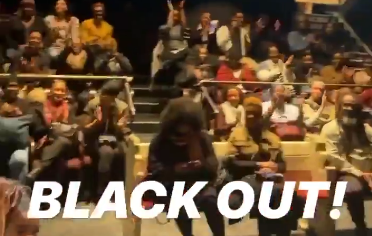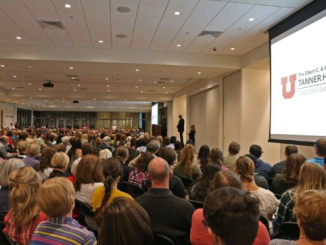
A theater that hosted a performance “exclusively for black audiences” argued that white people do not have a legal standing when it comes to claiming racial discrimination.
Theatre Passe Muraille in Toronto, Canada, has hosted “Black Out Nights” which it has described as “performances for Black audiences” that are for “Black theatre-goers to experience theatre in a space made for them.”
The theater even has a protocol for excluding non-black people from the venue through on-site re-education.
{snip}
Stewart cited Section 13 and Section 1 of the Ontario Human Rights Code, according to True North, which he alleged caused him a “serious level of discomfort and discouragement.”
The theater sees racial discrimination differently however, and argued through lawyer Morgan Sim that white people are not entitled to complaints of racial discrimination, due to being white.
“Here, the Applicant has only identified himself as ‘non-black’. To the extent that the Applicant is a white and non-racialized individual, he has no standing to allege racial discrimination in the context of theatre performances in Toronto,” Sim reportedly wrote.
The venue’s argument seemed to draw on a previous Human Rights Tribunal ruling. Human Rights Tribunals are panels of assigned arbitrators who rule on human rights complaints against individuals or organizations.
InLisikh v. Ontario, a high school student tried to sign up for a summer program but was rejected because he was white. His case was dismissed by the irregular court under a “Special Programs” clause that exists to “assist disadvantaged persons or groups to achieve or attempt to achieve equal opportunity.”
{snip}
“A member of our staff will be present to chat with this person by welcoming this person to hold a conversation with us. We found that most times, once people hear about the intentions to create a safer space for Black folx [sic], they understand.”
Would-be attendees are then recommended to exchange their tickets for a showing on a different night that allows audience members of their race.
It is also noted by the theater that in these situations, they would do their best to not have any black employees at the venue participate in the re-education of a potential non-black customer.
“We try our best to have this labour land on a non-Black staff member and we will have non-Black front-of-house, leadership, or technical and production team members present in the lobby to help facilitate such situations.”
* Original Article:
https://www.theblaze.com/news/theater-no-white-people-nights


